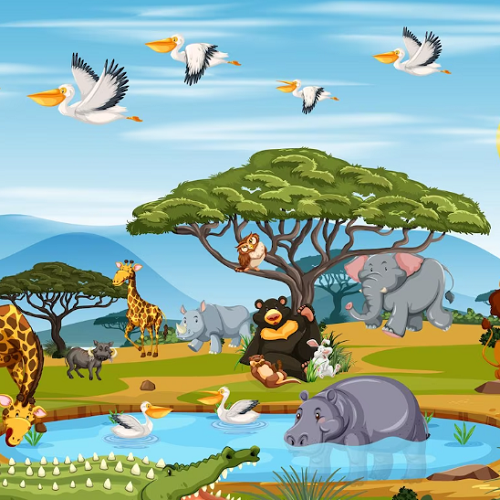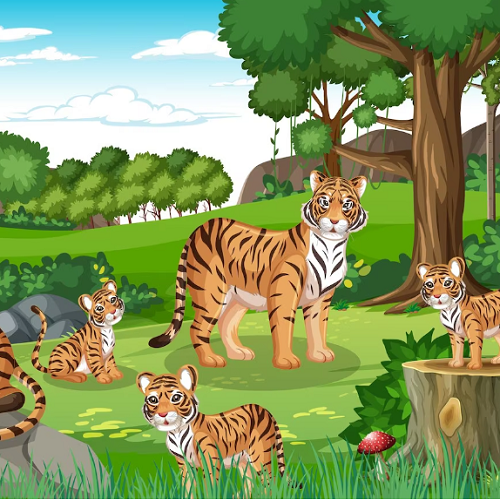Loading...


JORE POKHRI WILDLIFE SANCTUARY
Jore Pokhri Wildlife Sanctuary is situated near the India-Nepal border in the state of West Bengal. It is
bound by Kachendzonga on one side and Kurseong and Darjeeling on the other. The sanctuary consists
of two lakes. Hence, it is named as Jore Pokhri, which in local language means two lakes (‘Jore’ denotes
two and ‘pokhri’ means lake).
Notification: Wildlife sanctuary: 1985.
Flora
Oak and temperate broadleaf forests.
Wildlife
Jore Pokhri sanctuary is mainly famous for its Himalayan Salamander population. In local dialect this animal is referred to as 'Gora'. In Europe this species of rare amphibian has became extinct long ago. However, they continue to show up sporadically in certain areas of the Darjeeling hills. Hence, the Himalayan salamanders or newts are strictly safeguarded under the Wildlife Protection Act, 1972. Besides Himalayan salamander, the other wildlife species of the sanctuary include wild boar, lesser cats, fox and many reptiles and colourful birds.
Getting there
The nearest railway station to Jore Pokhri Wildlife Sanctuary is at NJP (New Jalpaiguri). Bagdogra airport is the nearest aerodrome. Sukhiapokhri the closest town is well linked with Mirik and Darjeeling.
Tourist Information
Accommodation facilities within Jorepokhri are provided to the incoming visitors by Darjeeling Gorkha Hill Council ((DGHC). One can find comfortable staying facilities at Lepchajagat Forest Rest House which is situated approximately 4km away.
The two lakes within the sanctuary are the best places to spot the animals and birds, especially the Himalayan salamander.
Jorepokhri sanctuary is artificially decorated and offer breathtaking locations for photography. Trekking, wildlife spotting and wildlife photography are chief tourist activities here. The visitors are advised to carry their own food and water provision inside the forest. Littering is strictly prohibited.
Additional Information
Location: Jore Pokhri Wildlife Sanctuary, Darjeeling District, West Bengal
Area: around 4 hectares
Altitude: 1600-1800m above sea level
Ideal time to visit: June to August
© Arked
Notification: Wildlife sanctuary: 1985.
Flora
Oak and temperate broadleaf forests.
Wildlife
Jore Pokhri sanctuary is mainly famous for its Himalayan Salamander population. In local dialect this animal is referred to as 'Gora'. In Europe this species of rare amphibian has became extinct long ago. However, they continue to show up sporadically in certain areas of the Darjeeling hills. Hence, the Himalayan salamanders or newts are strictly safeguarded under the Wildlife Protection Act, 1972. Besides Himalayan salamander, the other wildlife species of the sanctuary include wild boar, lesser cats, fox and many reptiles and colourful birds.
Getting there
The nearest railway station to Jore Pokhri Wildlife Sanctuary is at NJP (New Jalpaiguri). Bagdogra airport is the nearest aerodrome. Sukhiapokhri the closest town is well linked with Mirik and Darjeeling.
Tourist Information
Accommodation facilities within Jorepokhri are provided to the incoming visitors by Darjeeling Gorkha Hill Council ((DGHC). One can find comfortable staying facilities at Lepchajagat Forest Rest House which is situated approximately 4km away.
The two lakes within the sanctuary are the best places to spot the animals and birds, especially the Himalayan salamander.
Jorepokhri sanctuary is artificially decorated and offer breathtaking locations for photography. Trekking, wildlife spotting and wildlife photography are chief tourist activities here. The visitors are advised to carry their own food and water provision inside the forest. Littering is strictly prohibited.
Additional Information
Location: Jore Pokhri Wildlife Sanctuary, Darjeeling District, West Bengal
Area: around 4 hectares
Altitude: 1600-1800m above sea level
Ideal time to visit: June to August
© Arked











